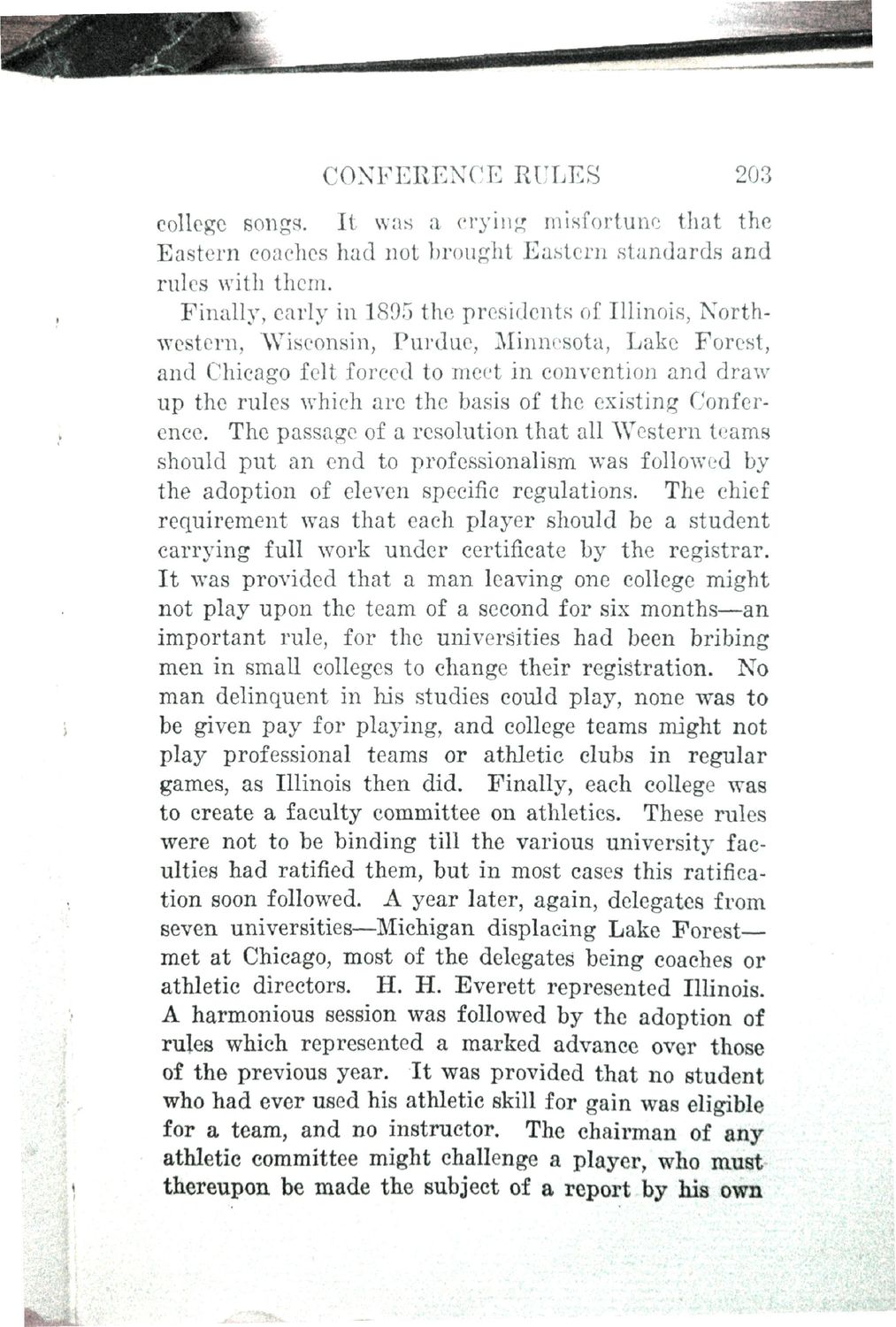| |
| |
Caption: Book - History of the University (Nevins)
This is a reduced-resolution page image for fast online browsing.

EXTRACTED TEXT FROM PAGE:
• -'*&*'* CONFERENCE RULES 203 college songs. I t was a crying misfortune that the Eastern coaches had not brought Eastern standards and rules with them. Finally, early in 1895 the presidents of Illinois, Northwestern, Wisconsin, Purdue, Minnesota, Lake Forest, and Chicago felt forced to meet in convention and draw up the rules which are the basis of the existing Conference. The passage of a resolution that all Western teams should put an end to professionalism was followed by the adoption of eleven specific regulations. The chief requirement was that each player should be a student carrying full work under certificate by the registrar. I t was provided that a man leaving one college might not play upon the team of a second for six months—an important rule, for the universities had been bribing men in small colleges to change their registration. No man delinquent in his studies could play, none was to be given pay for playing, and college teams might not play professional teams or athletic clubs in regular games, as Illinois then did. Finally, each college was to create a faculty committee on athletics. These rules were not to be binding till the various university faculties had ratified them, but in most cases this ratification soon followed*$A year later, again, delegates from seven universities—Michigan displacing Lake Forest— met at Chicago, most of the delegates being coaches or athletic directors. H. H. Everett represented Illinois. A harmonious session was followed by the adoption of rules which represented a marked advance over those of the previous year. It was provided that no student who had ever used his athletic skill for gain was eligible for a team, and no instructor. The chairman of any athletic committee might challenge a player, who must thereupon be made the subject of a report by his own
| |